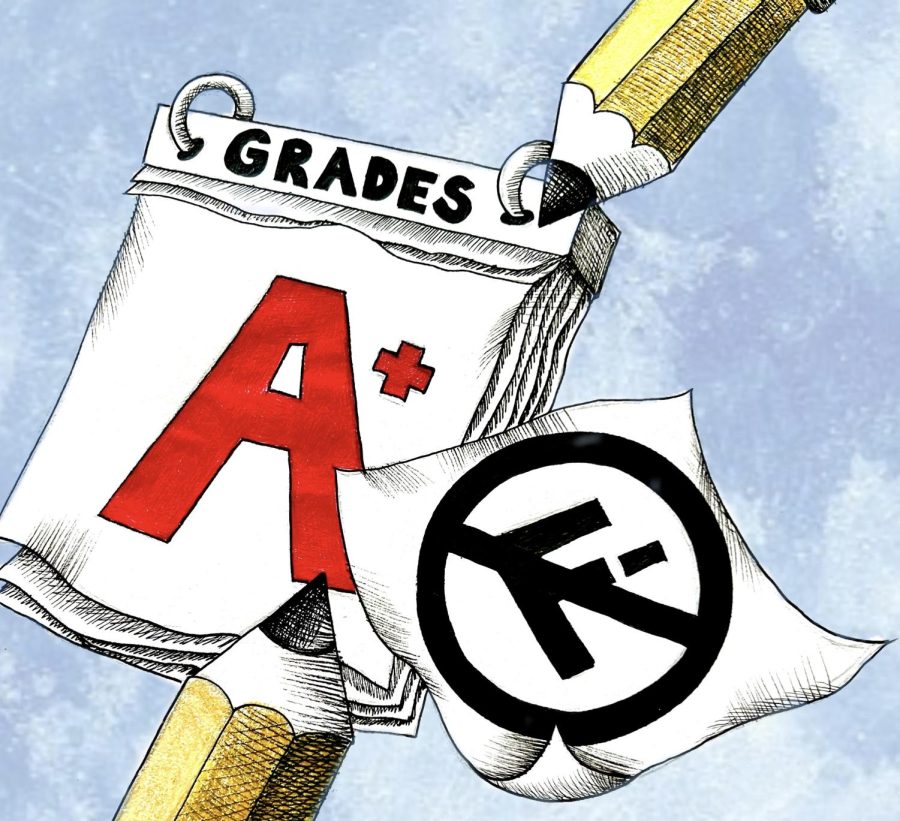UT needs a grade replacement policy
February 27, 2023
Imagine it’s your first semester in college. You’re going to classes, taking notes and studying for exams, only to find out that you didn’t get the grade you wanted. Unfortunately, this is a reality many students face.
Not all students come to UT-Austin knowing the study method that works for them, and sometimes, this is reflected through final course grades. The University should adopt a grade replacement policy that allows students to retake a course and replace a failing grade in order to improve their grade point average.
Current universities that offer grade replacement policies are the University of Texas at Tyler, Texas Tech University, The University of Texas at San Antonio and Texas A&M. However, UT-Austin does not have one.
Grade replacement policies look different at every institution. The University of Texas at Tyler, an institution that is part of the UT system, currently allows their undergraduate students to request a grade replacement for up to three different courses. Students at UT-Tyler are able to retake a course, but only the last grade earned will be used to calculate their GPA.
Yanet Hernandez, a freshman Medical Laboratory Sciences major, voiced her concerns about the pressure to keep a high GPA, an important factor for job opportunities.
“A lot of my programs to go into my clinical year as a senior, which I have to apply to, require (me) to have a minimum GPA, and it changes per program,” Hernandez said. “I just know that the higher my GPA is, the greater the chance to be accepted to my top choice program.”
A grade replacement policy would particularly benefit STEM students at UT-Austin whose classes heavily emphasize exam grades over homework and other course content. This would also encourage all students to pursue the major that they truly desire instead of choosing a major they deem to be easier solely for the purpose of achieving a higher GPA.
“Medicine and related sciences classes are already hard enough to not be able to even (have) a second opportunity to try again,” Hernandez said. “If the student needs a class to graduate in their major, they’re gonna be frustrated at the idea that they can’t take it again.”
Many students could potentially be discouraged from pursuing careers in their desired fields because of their grades in their first year courses. In a study, it was found that earning poor grades in early STEM classes decreases the likelihood of students continuing with the major.
With the lack of a grade replacement policy, UT-Austin is failing to provide students with an opportunity to improve their course grades. In a world where GPA is heavily examined, UT-Austin is making it harder for students to be accepted into graduate schools.
Kathleen Harrison, Assistant Director of Communications, declined to comment on the matter.
UT-Austin should adopt a grade replacement policy where students do not have a limit on the number of times they can retake a course as long as their first grade meets the replacement eligibility. This can happen if the student makes a D or an F, which is similar to Texas Tech’s grade replacement policy.
Like UT-Tyler and other universities, UT-Austin should adopt a grade replacement policy to encourage students to keep pursuing majors and careers that they are passionate about.
DonJuan is a Plan II and economics freshman from Quanah, Texas.
















